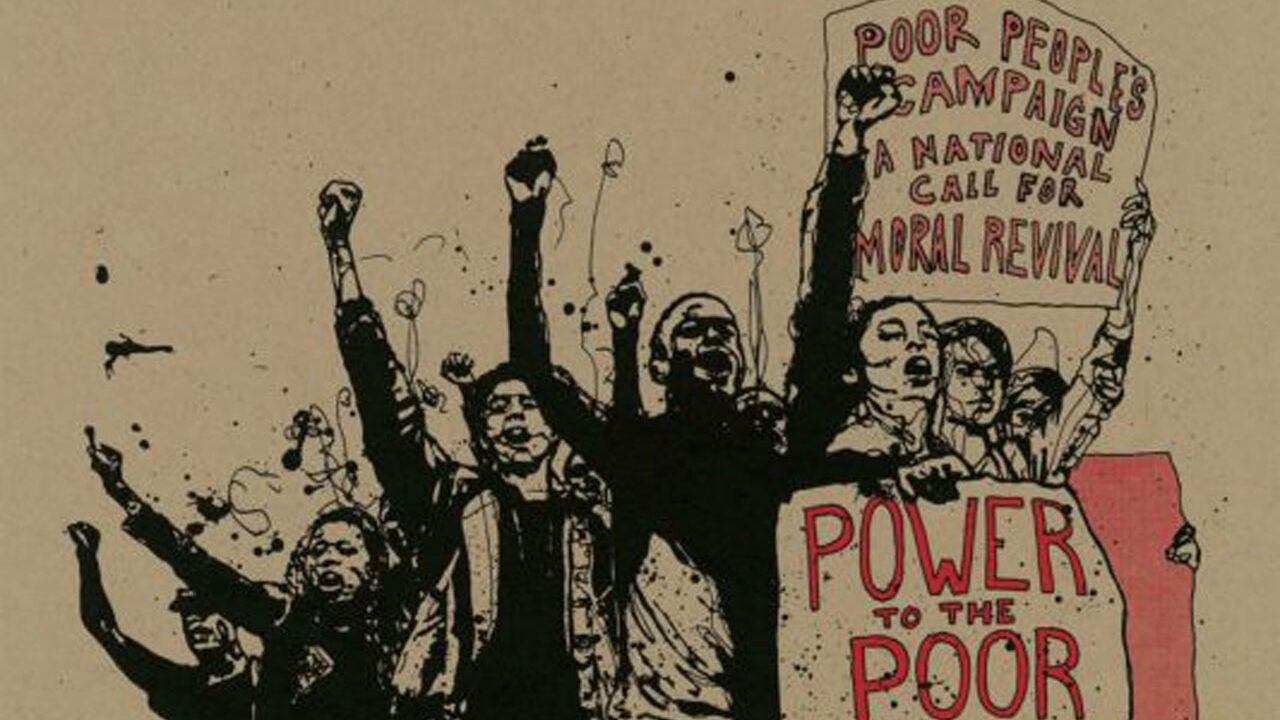Poor People’s Organizing Historically & Today

Definition
We see the fight to end poverty as part of the continuing struggle to achieve a world free of injustice. Social movements throughout our nation’s history have advanced that struggle. What all of these movements hold in common is the fact that those most impacted by injustice were always at the forefront of the struggle. We draw from such movements as the fight to end slavery, led by the likes of Harriet “Moses” Tubman and John Brown; the Women’s Suffrage Movement, led by Susan B. Anthony and Alice Paul; the struggle of the multi-racial Southern Tenant Farmers Union during the Great Depression, led by Ike Shaw & H.L. Mitchell; and the Rev. Dr. Martin Luther King’s Poor People’s Campaign, involving leaders such as chairwoman Johnnie Tillmon of the National Welfare Rights Organization and Myles Horton of the Highlander Center. More recently, the organizing drive of the National Union of the Homeless in the early 1990s again affirmed the importance and potential of the organized poor and dispossessed being at the forefront of a broad movement to end poverty.
Today, we believe that to succeed in building a social movement to end poverty led by the poor as a united social force, we must begin by developing and unifying a core of committed and competent leaders. This work requires that we understand the conditions people are facing and build the consciousness of leaders as a social force.
Why This Matters
We believe that poverty is the defining issue of our day and organizing the poor has been the cornerstone of Kairos’ work. We do not understand poverty as an individual failure, but as a social crisis. While the effects of a failing social system manifest in a lack of food, shelter and dignified work, the consequences of poverty run much deeper and affect all sections of society. Poverty in our society is as much a spiritual imbalance as it is an economic imbalance, as much a shortcoming of justice as it is a shortcoming of food. In a time of historically unprecedented material abundance, we believe that all people should have not only the right to survive, but also to thrive. In other words, we strive and fight for the universal and God-given human rights to life, liberty, and the pursuit of happiness for us all.
Given this broader social understanding of poverty and its connection to the interlocking injustices of systemic racism, ecological devastation, militarism, and the distorted moral narrative of Christian Nationalism, we believe that ending poverty requires social transformation; and social transformation requires a social movement.
Our Response
- Confront the Conditions: In recent years, the US economy experienced a severe crisis that has spawned large numbers of unemployed, housing foreclosures, bankruptcy, and hunger. It has sent shockwaves through the rest of the global economy pushing millions more people into poverty. While the predicament of poverty encompasses the lack of adequate food, work, healthcare, and housing it also contributes to a range of other social problems including; sexism, racism, xenophobia, militarism, environmental degradation, etc. All of these issues are interconnected. They affect all members of a society, but are most fully embodied in the experience of those living in economic poverty. When united and placed at the forefront of a social movement, the poor become what the Reverend Dr. Martin Luther King, Jr. described as a “new and unsettling force.” This force has the potential and often seeks to not only improve the conditions for one group or address a single issue – but unify diverse portions of the population for social justice.
- Develop Leaders and Build Consciousness: We believe that to succeed in this vision and build a social movement to end poverty led by the poor as a united social force, we must begin by developing and unifying a core of committed and competent leaders. We, therefore, work to develop a core of sophisticated leaders from communities across the country and around the world by bringing together and advancing the experience and knowledge that exists within our network of grassroots organizations.
- Projects of Survival
Tips for How to Use These Resources in Your Community
- Learn as You Lead – Join the state-based work of the Poor People’s Campaign wherever you live
- Teach as You Fight – Lead a study series in your community using articles, videos and other resources from this resource hub
- The Struggle is Our School – Invite a leader from the Kairos Center Network to speak at your church or community organization and learn from the first hand experience of leaders working to build a movement to end poverty and the interlocking injustices
- Follow the Kairos Center on social media to access our latest content.